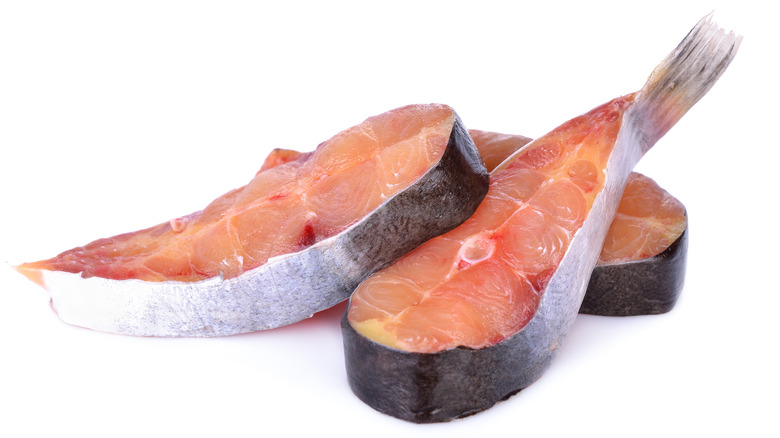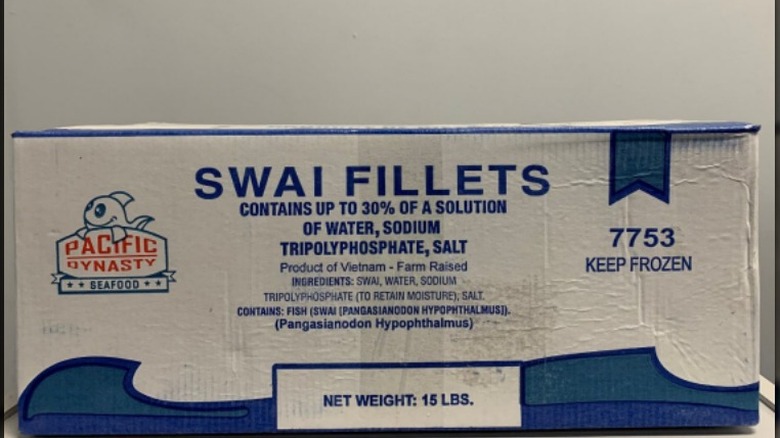Everything You Need To Know About 2022's Swai Fish Recall
Fish is a great protein alternative for when you're tired of eating the same old chicken, beef, or pork. There are a lot of types of fish out there, from salmon to tilapia to cod. However, if you're looking for a fish that doesn't taste, well, fishy, swai is a popular pick. The white fish is slightly controversial. Because it's a type of catfish farmed in Vietnam, it may not have the cleanest diet, which can result in high levels of mercury and other potentially toxic chemicals (via MedicineNet). However, there are also plenty of benefits to eating swai fish. It's low in calories yet high in protein and is a good source of vitamins and nutrients like niacin, vitamin B12, and selenium (via Healthline).
While swai might be worth adding to your weekly menu in the future, you may want to hold off on buying (or eating) it anytime soon. Late last week, the U.S. Department of Agriculture (USDA) just announced Corfu Food, Inc.'s recall of more than 6,500 pounds of swai fish that was distributed to stores across the Midwest region. Here's what you need to know about the recall, including why the fish isn't safe to eat and how to know if the swai in your fridge was affected.
The USDA warns the fish wasn't inspected properly
Often, when the USDA's Food Safety and Inspection Service (FSIS) issues a recall, it's because a food has caused a harmful reaction or another adverse event. However, that's not the case with the swai recall. Instead, the FSIS explained in a release announced on February 18, 2022, that it mandated the recall of 6,570 pounds of swai fish sold by Corfu Foods, Inc. because the product imported from Vietnam was "not presented for import reinspection into the United States." The fish, which was sold both in bulk and individually at seafood counters, was distributed in midwestern states Illinois, Indiana, Michigan, and Wisconsin. While no reactions or illnesses related to eating the swai have been reported, the USDA cautions consumers not to eat the fish and instead throw it away or return it to the store where it was purchased.
It's not the first time something like this has happened. In 2019, the USDA recalled swai fish sold by H&T Seafood for the same reason: It hadn't been inspected properly upon entering the United States (via KATC News).

